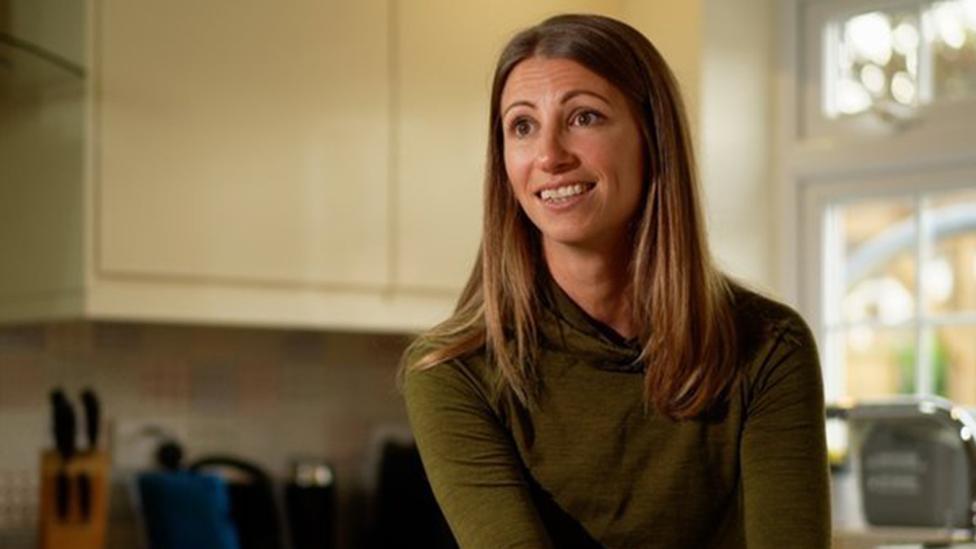Midwives' 'heartbreaking' struggle to find work
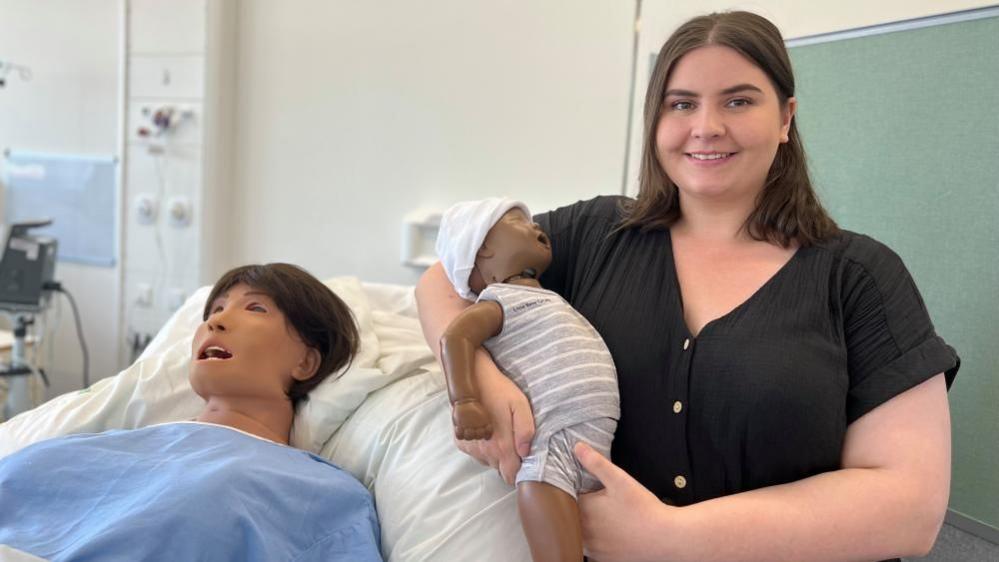
Belle Rodbourne believes mortality rates could be reduced if there was more investment in midwives
- Published
Midwives have told of their "heartbreaking" struggle to find work - despite the apparent shortage of staff in the sector.
Belle Rodbourne and Sophie Rooke fought off tough competition to secure training at the University of Bradford, and looked forward to their dream roles as government data suggested about 2,500 more midwives were needed.
But both students were advised to seek "back-up plans" due to a shortage of positions available - with many from their cohort still without work.
The Royal College of Midwives said: "The number of full-time working midwives has not kept pace with the growing amount of complexity facing services."
Before Ms Rodbourne, 28, was accepted to study midwifery, she had worked in a care home and had always known her role in life was to care for people.
With two children aged nine and four, going back to university as a mature student took a lot of planning, and she had to complete an access course and A levels before beginning her training.
Her work paid off and three years ago she was accepted to study with 45 others who she described as being "like a family".
'Passion' for care work
But in September last year, reality hit in a way she found "heartbreaking".
Her cohort were told it was going to be "difficult with jobs this year" and were warned to have "back-up plans".
Ms Rodbourne was one of the "lucky ones" and secured a job in Bradford but said: "It didn't feel like a time of celebration, almost like mourning, because you'd secured a job but many had not."
About 75% of the cohort have now secured work but many have taken fewer hours at the hospital trusts in the hope more of their year can find positions.
Ms Rodbourne said: "You can't be a midwife if you don't care.
"You've got to care about it and every single one of these women at Bradford are passionate and they care and they deserve it and it's heartbreaking to see some of them haven't got a job."
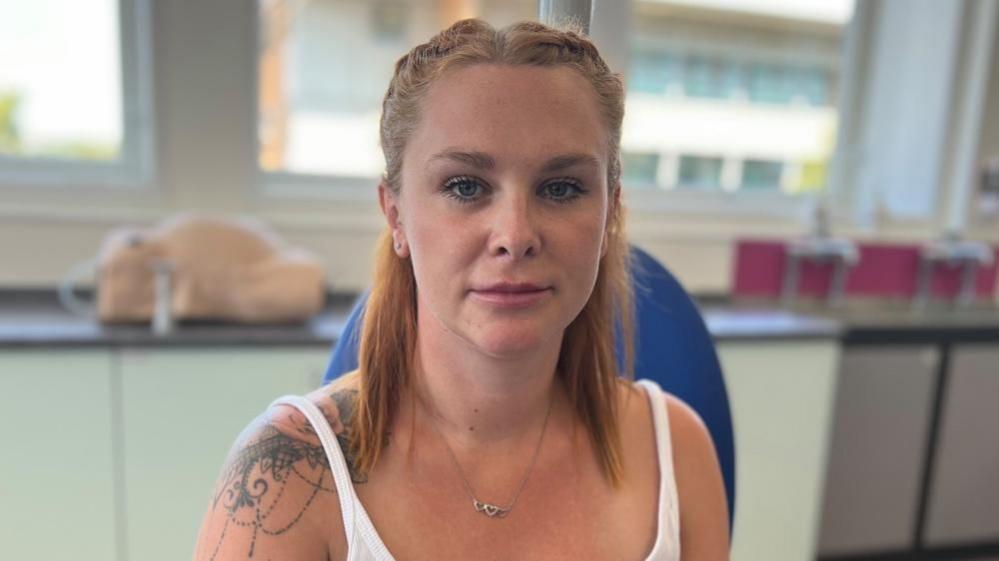
Sophie Rooke wanted to become a midwife after the traumatic birth of her first child
Sophie Rooke, 34, was inspired to take up midwifery following the traumatic birth of her oldest daughter.
She has three girls aged 10, eight and five, and said although the care she received while giving birth was good it "could have been better".
During her first two years at university, Ms Rooke said the job situation locally was "not that bad".
But she said, in September 2024 as third-year students, they were told "ladies you need plan Bs as you're not all going to get jobs".
She found it "truly awful" and said her husband must have "had enough of her crying".
Ms Rooke said she even applied for a job in Bolton about 45 miles away but withdrew as it was not "viable" to commute that far, particularly with three children of her own to care for.
In the end, Ms Rooke did not need a "plan b" and has secured work at Pinderfields Hospital, Wakefield.
She has also taken fewer hours in the hope more of her cohort can secure work.
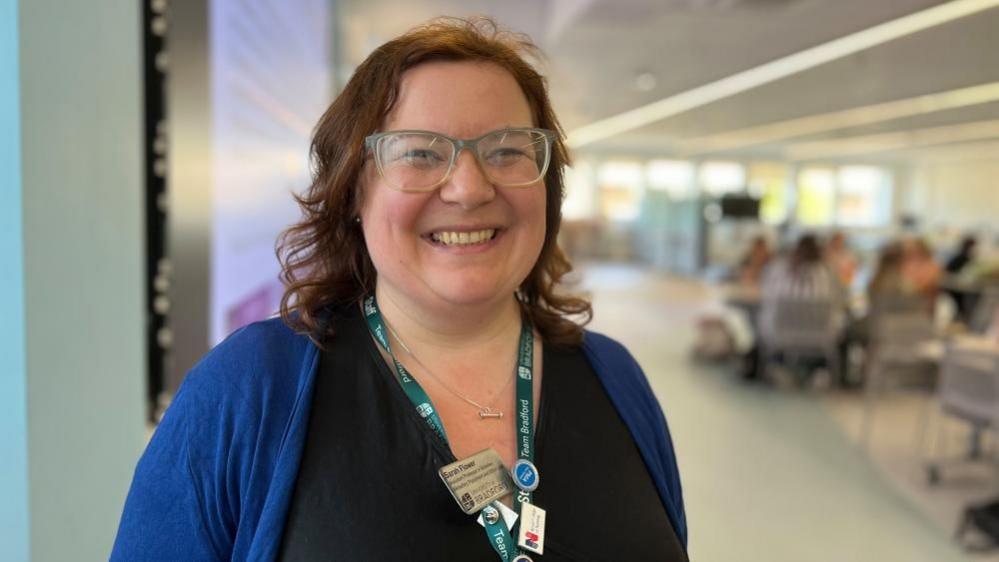
Prof Sarah Flower from the University of Bradford believes the best way to improve "best practice" for midwives is to teach the next generation
Sarah Flower, Assistant Professor of Midwifery at the University of Bradford, is helping to teach the next generation of midwives.
Prof Flower said her trainees were entering the profession at a "really exciting time, but a really challenging time".
She said: "To support them into midwifery at the moment is a real privilege because they can make such a huge difference for women and families."
The course in Bradford runs for three years and has tapped into the latest technology to help trainees learn - including using AI headsets and birth simulators.
Staff work closely with Bradford District Care NHS Foundation Trust, Airedale NHS Foundation Trust and Harrogate and District NHS Foundation Trust.
Politics North (Yorkshire and Lincolnshire)
See more on this story and others from your area
Ms Rooke called on the government to "take note", saying: "All the reports are that the care isn't there but the care is not there because the staff's not there."
Ms Rodbourne added: "If adequate amounts of funding were made available it would solve a lot of things in maternity."
The Department of Health this week announced a national investigation into maternity care in England.
The "rapid" inquiry will urgently look at the worst-performing maternity and neonatal services in the country.
It will begin this summer and report back by December.
Get in touch
Tell us which stories we should cover in Yorkshire
Listen to highlights from West Yorkshire on BBC Sounds, catch up with the latest episode of Look North or tell us a story you think we should be covering here, external.
Related stories
- Published23 June
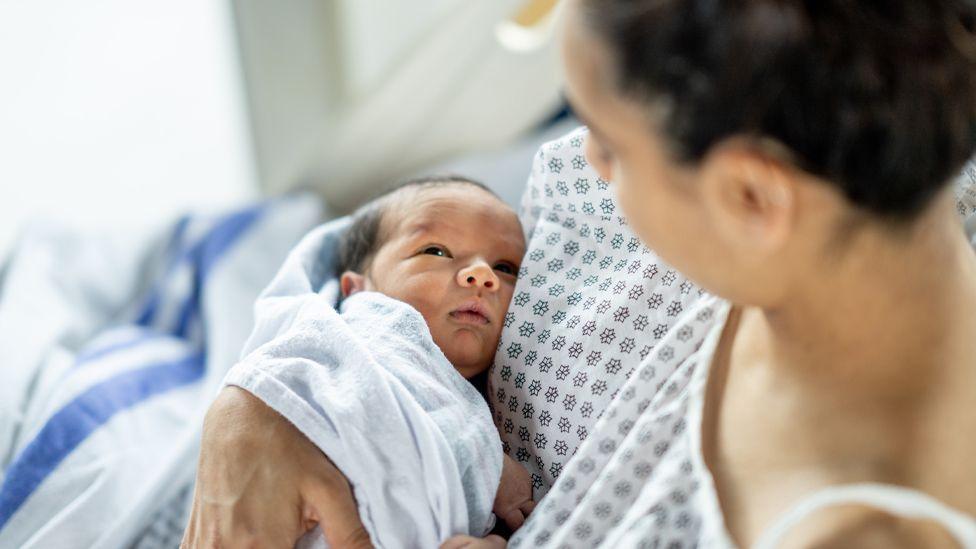
- Published9 January 2024
